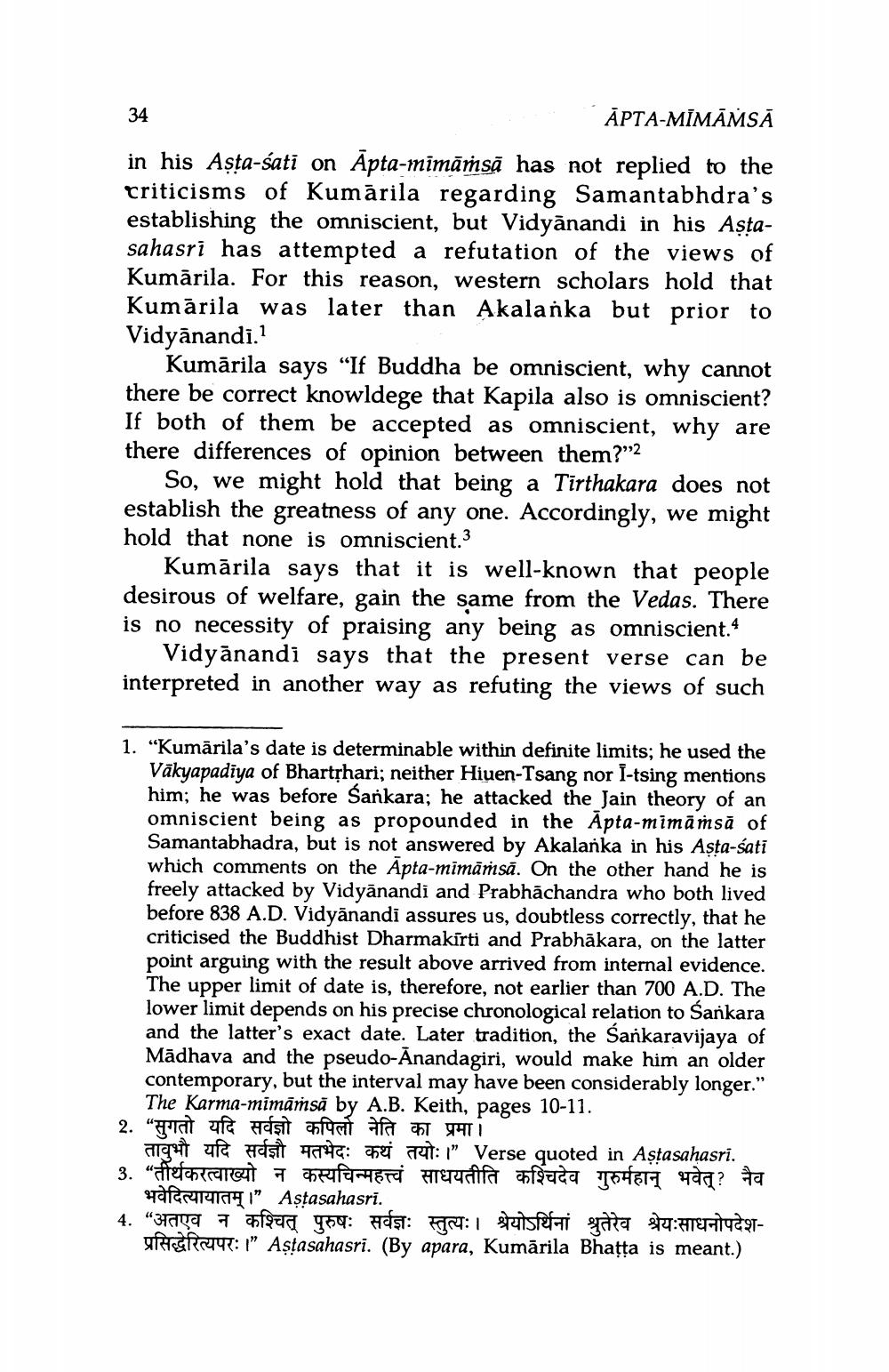________________
ĀPTA-MĪMĀMSĂ
in his Asta-sati on Apta-mīmāṁsā has not replied to the triticisms of Kumārila regarding Samantabhdra's establishing the omniscient, but Vidyānandi in his Astasahasri has attempted a refutation of the views of Kumārila. For this reason, western scholars hold that Kumārila was later than Akalanka but prior to Vidyānandi.1
Kumārila says “If Buddha be omniscient, why cannot there be correct knowldege that Kapila also is omniscient? If both of them be accepted as omniscient, why are there differences of opinion between them?”2
So, we might hold that being a Tīrthakara does not establish the greatness of any one. Accordingly, we might hold that none is omniscient.3
Kumārila says that it is well-known that people desirous of welfare, gain the same from the Vedas. There is no necessity of praising any being as omniscient.
Vidyānandi says that the present verse can be interpreted in another way as refuting the views of such
1. “Kumārila's date is determinable within definite limits; he used the
Väkyapadiya of Bharthari; neither Hiuen-Tsang nor I-tsing mentions him; he was before Sankara; he attacked the Jain theory of an omniscient being as propounded in the Apta-mimāṁsā of Samantabhadra, but is not answered by Akalanka in his Asta-sati which comments on the Apta-mimāṁsā. On the other hand he is freely attacked by Vidyānandi and Prabhachandra who both lived before 838 A.D. Vidyānandi assures us, doubtless correctly, that he criticised the Buddhist Dharmakirti and Prabhākara, on the latter point arguing with the result above arrived from internal evidence. The upper limit of date is, therefore, not earlier than 700 A.D. The lower limit depends on his precise chronological relation to Sankara and the latter's exact date. Later tradition, the Sankaravijaya of Madhava and the pseudo-Anandagiri, would make him an older contemporary, but the interval may have been considerably longer."
The Karma-mimāṁsă by A.B. Keith, pages 10-11. 2. "a uf Hasit asperit afat Thi
acuit af Helsit 1975: i : 1" Verse quoted in Astasahasri. 3. “तीर्थकरत्वाख्यो न कस्यचिन्महत्त्वं साधयतीति कश्चिदेव गुरुर्महान् भवेत् ? नैव
afira!" Astasahasri. 4. “अतएव न कश्चित् पुरुषः सर्वज्ञः स्तुत्यः। श्रेयोऽर्थिनां श्रुतेरेव श्रेयःसाधनोपदेश
ufifunt:l" Astasahasri. (By apara, Kumārila Bhatta is meant.)




